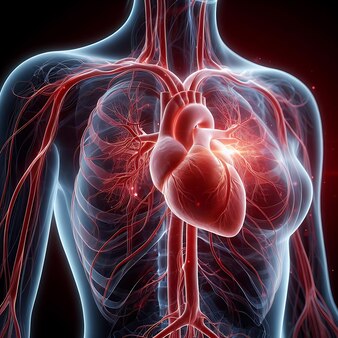Cardiomyopathy

Understanding Cardiomyopathy
Cardiomyopathy refers to diseases of the heart muscle, where the heart becomes enlarged, thickened, or stiff, leading to reduced heart function and potential complications. It is a progressive condition that can affect people of all ages and can be inherited or acquired.
Types and Causes
There are several types of cardiomyopathy, including:
- Dilated Cardiomyopathy (DCM): Characterized by enlargement of the heart chambers and weakened heart muscle.
- Hypertrophic Cardiomyopathy (HCM): Involves thickening of the heart muscle, particularly the left ventricle.
- Restrictive Cardiomyopathy (RCM): Involves stiffening of the heart muscle, impairing its ability to fill with blood properly.
- Arrhythmogenic Right Ventricular Dysplasia/Cardiomyopathy (ARVD/C): Involves the replacement of heart muscle with fatty or fibrous tissue, leading to arrhythmias and other complications.
Cardiomyopathy can be caused by various factors, including genetics, infections, autoimmune conditions, metabolic disorders, and certain medications or toxins.
Symptoms and Complications
Symptoms of cardiomyopathy can vary depending on the type and severity but may include:
- Shortness of breath, especially during physical activity or when lying down
- Fatigue and weakness
- Swelling in the legs, ankles, or abdomen
- Irregular heartbeat (arrhythmias)
- Chest pain or discomfort
Complications of cardiomyopathy can include heart failure, arrhythmias, blood clots, sudden cardiac arrest, and even death if left untreated.
Diagnosis and Treatment
Diagnosing cardiomyopathy typically involves a combination of medical history review, physical examination, imaging tests such as echocardiography, electrocardiogram (ECG/EKG), and sometimes genetic testing. Treatment aims to manage symptoms, improve heart function, and prevent complications. Depending on the type and severity of cardiomyopathy, treatment options may include:
- Lifestyle modifications such as dietary changes, exercise restrictions, and smoking cessation
- Medications to improve heart function, control blood pressure, and manage symptoms
- Implantable devices like pacemakers or implantable cardioverter-defibrillators (ICDs) to regulate heart rhythm
- Surgical procedures such as septal myectomy or heart transplantation in severe cases
